News & Media
Keeping our oceans sustainable: Marine Studies in the spotlight at Unisa conference
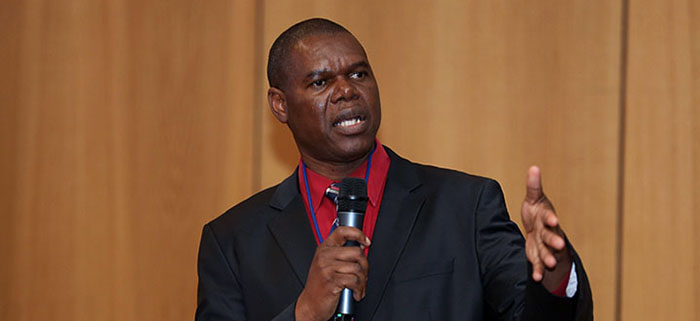
Prof Godwell Nhamo, Acting Head of the Institute for Corporate Citizenship
Following the official launch of Unisa’s Catalytic Niche Area Research Symposium on 30 July 2025, Unisa academics and specialists from the Department of Forestry, Fisheries and the Environment, the South African Weather Services, and the South African Environmental Observation Network discussed the university’s catalytic niche area (CNA) 1, Marine Studies, under the theme Harnessing Technology and IKS for Sustainable Ocean Observation and Coastal Resilience.
Watch a recording of the symposium proceedings
In his opening address, session convener Prof Godwell Nhamo, Acting Head of the Institute for Corporate Citizenship in the College of Economic and Management (CEMS), outlined the background of the discussions, stating that there have been growing calls for universities to undertake research with and for communities to enhance improvement in livelihoods and development agendas.
Continuing, Nhamo stressed that there has been a lot of growing evidence for the need to reconsider how the world interacts with ocean, marine, maritime and coastal resilience matters. "This," he added, "has led to the United Nations declaring the Ocean Decade (2021-2030) with the view to growing the science and raising awareness around the ocean, including the ratification of the Sustainable Development Goals (SDGs), particularly SDG14. The development of co-designed, co-created and co-delivered research and engagement models, enhancing the application of technologies and indigenous knowledge systems, remains fundamental in marine and coastal research."
In conclusion, Nhamo emphasised that the symposium intends to open up research areas by identifying society’s most pressing developmental needs. "The symposium," he emphasised, "provides opportunities for collaboration across the fundamental and applied sciences, including the humanities and social sciences, and encourages multi-disciplinary and transdisciplinary research."
Leading the implementation process
Thandeka Mbambo from the Department of Forestry, Fisheries and the Environment (DFFE) outlined that the department, as a leading authority, is responsible for implementing the National Integrated Coastal Management Act 24 of 2008 (amended).
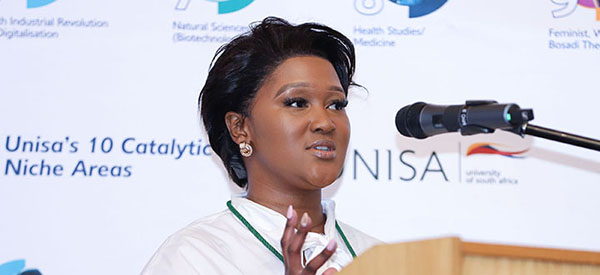
Thandeka Mbambo from the Department of Forestry, Fisheries and the Environment
Continuing, Mbambo explained the key functions of the DFFE, which include enhancing climate change adaptation and mitigation, promoting ecosystem and community resilience by ensuring inclusive and adaptive responses to environmental change, and promoting sustainable, integrated coastal governance.
Mbambo detailed the department's key priorities, including balancing socio-economic development with ecological integrity, facilitating multi-level governance co-ordination (at national, provincial and local levels), and embedding adaptation measures in spatial planning and risk reduction.
Unpacking the DFFE’s role in ocean and coastal areas, Mbambo outlined the following:
Technical and coordination role
- Developing national coastal/marine information systems and decision tools
- Leading spatial planning and vulnerability assessment
Conservation and engagement
- Supporting marine and ecosystem conservation and protected marine areas
- Enhancing community participation and climate justice in coastal governance
Integrated management
- Coordinating national, provincial and local coastal management programmes
- Driving targeted coastal climate change adaptation initiatives in spatial planning and risk reduction
Concluding, Mbambo expressed the hope that Unisa will partner with the department to collaborate in marine studies.
Essential weather services
Speaking next, Lebogang Makgati, Senior Manager: Marine, South African Weather Services (SAWS), began by outlining the functions of the institution, which, she said, is mandated by legislation to provide essential services in respect of marine, public weather and aviation services in order to save lives and property to benefit all citizens of the country.
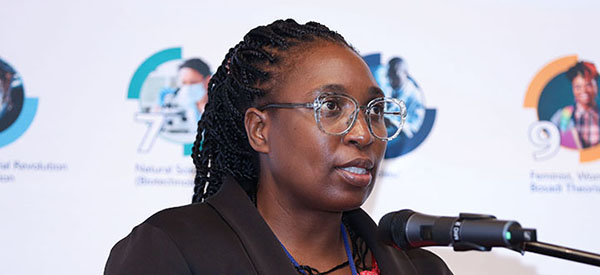
Lebogang Makgati, Senior Manager: Marine, South African Weather Services
As a member of the World Meteorological Organisation (WMO), SAWS, she said, complies with international meteorological standards, and is responsible for providing real-time maritime and aviation forecasts and warnings.
Concluding, Makgati explained that the marine service of SAWS’s primary area of responsibility is the maintenance of METAREA VII – an area spanning the South Atlantic and Southern Oceans, the second largest in the world, for which SAWS issues forecasts and warnings on a daily basis. She further detailed the technologies used in this regard.
Environmental observation on a massive scale
Globally renowned Marine Scientist, Prof Juliet Hermes, Manager at the South African Environmental Observation Network (SAEON) Egagasini Node, stated that SAEON engages in complex research on marine areas to provide marine and climate modelling, policy development and marine spatial planning to improve the sustainability of ecosystems and livelihoods. "We are also committed to transformation, collaboration and co-creation," she said. "A key part of our mission is building a transdisciplinary capacity by working with communities, students, researchers and decision-makers across South Africa and the broader African region to ensure that marine science contributes to inclusive development, a just transition, and capacity development," she explained.
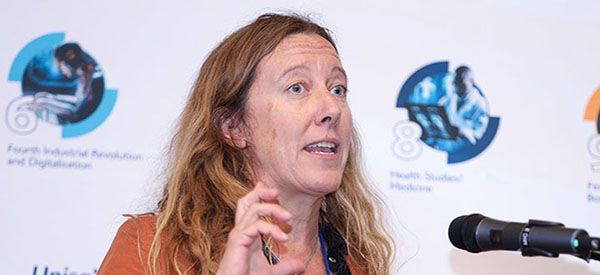 Prof Juliet Hermes, Manager at the South African Environmental Observation Network
Prof Juliet Hermes, Manager at the South African Environmental Observation Network
In conclusion, Hermes pointed out key focus areas that she hopes will mesh with Unisa’s envisaged goals for CNA 1. She said: "The key areas that underpin our work include ocean observation for climate early warning, marine heatwaves, rising sea-levels and related monitoring technologies, ocean accounting and governance, and innovation in ocean modelling and forecasting."
* By Godfrey Madibane, Acting Journalist, Department of Institutional Advancement
** Photography by Mduduzi Khathamzi, Multimedia Centre
Publish date: 2025-08-01 00:00:00.0
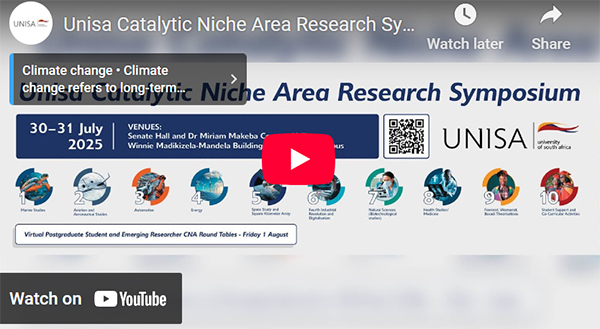


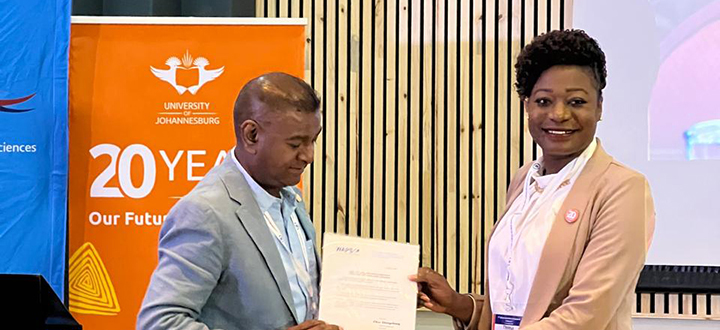 Unisa co-hosts major operations management conference
Unisa co-hosts major operations management conference
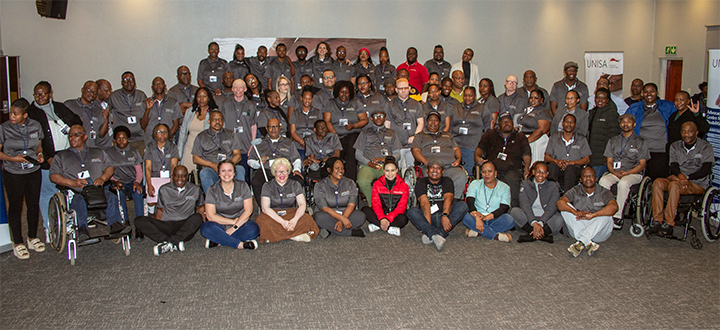 Strengthening disability-inclusive practices across higher education
Strengthening disability-inclusive practices across higher education
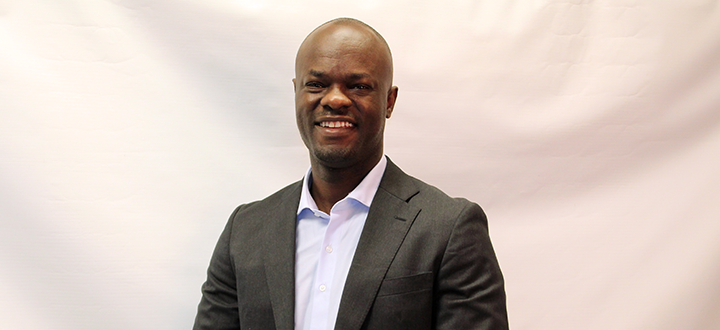 Unisa astrophysicist receives prestigious Royal Society award
Unisa astrophysicist receives prestigious Royal Society award
 Unisa's eminent women academics recognised for science excellence
Unisa's eminent women academics recognised for science excellence
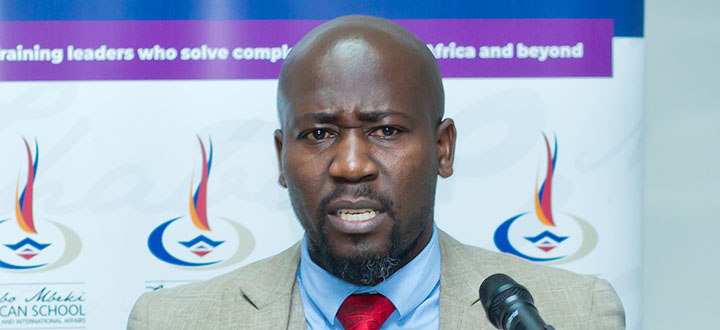 Illicit trade in Africa’s natural resources: Experts sound the alarm at Unisa seminar
Illicit trade in Africa’s natural resources: Experts sound the alarm at Unisa seminar